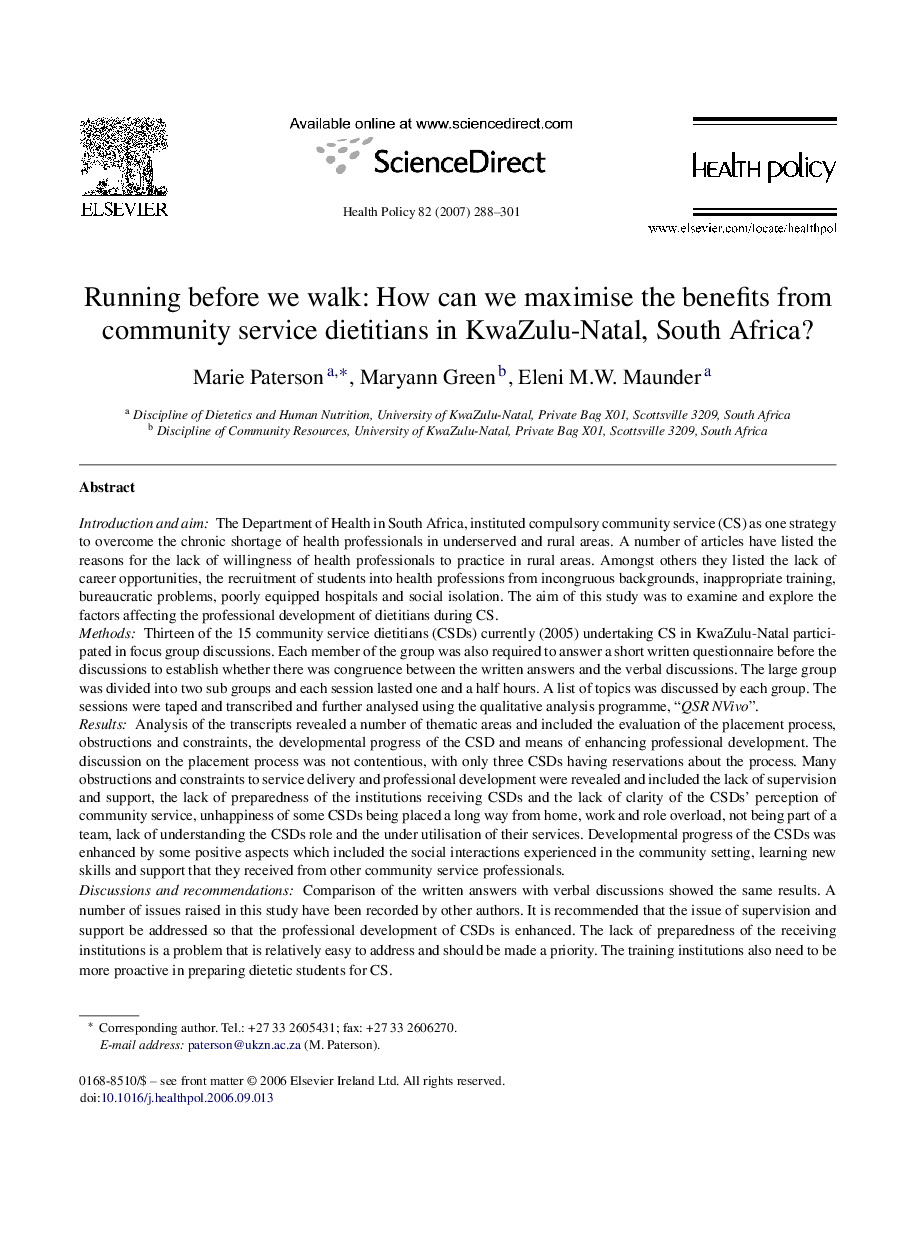| کد مقاله | کد نشریه | سال انتشار | مقاله انگلیسی | نسخه تمام متن |
|---|---|---|---|---|
| 4198849 | 1279081 | 2007 | 14 صفحه PDF | دانلود رایگان |

Introduction and aimThe Department of Health in South Africa, instituted compulsory community service (CS) as one strategy to overcome the chronic shortage of health professionals in underserved and rural areas. A number of articles have listed the reasons for the lack of willingness of health professionals to practice in rural areas. Amongst others they listed the lack of career opportunities, the recruitment of students into health professions from incongruous backgrounds, inappropriate training, bureaucratic problems, poorly equipped hospitals and social isolation. The aim of this study was to examine and explore the factors affecting the professional development of dietitians during CS.MethodsThirteen of the 15 community service dietitians (CSDs) currently (2005) undertaking CS in KwaZulu-Natal participated in focus group discussions. Each member of the group was also required to answer a short written questionnaire before the discussions to establish whether there was congruence between the written answers and the verbal discussions. The large group was divided into two sub groups and each session lasted one and a half hours. A list of topics was discussed by each group. The sessions were taped and transcribed and further analysed using the qualitative analysis programme, “QSR NVivo”.ResultsAnalysis of the transcripts revealed a number of thematic areas and included the evaluation of the placement process, obstructions and constraints, the developmental progress of the CSD and means of enhancing professional development. The discussion on the placement process was not contentious, with only three CSDs having reservations about the process. Many obstructions and constraints to service delivery and professional development were revealed and included the lack of supervision and support, the lack of preparedness of the institutions receiving CSDs and the lack of clarity of the CSDs’ perception of community service, unhappiness of some CSDs being placed a long way from home, work and role overload, not being part of a team, lack of understanding the CSDs role and the under utilisation of their services. Developmental progress of the CSDs was enhanced by some positive aspects which included the social interactions experienced in the community setting, learning new skills and support that they received from other community service professionals.Discussions and recommendationsComparison of the written answers with verbal discussions showed the same results. A number of issues raised in this study have been recorded by other authors. It is recommended that the issue of supervision and support be addressed so that the professional development of CSDs is enhanced. The lack of preparedness of the receiving institutions is a problem that is relatively easy to address and should be made a priority. The training institutions also need to be more proactive in preparing dietetic students for CS.ConclusionsCompulsory community service as a method of addressing the problems of underserved population has merit. To maximise the benefits the DOH would do well to heed the recommendations by ensuring that there are structures in place to provide adequate resources for and support and supervision of CSDs.
Journal: Health Policy - Volume 82, Issue 3, August 2007, Pages 288–301